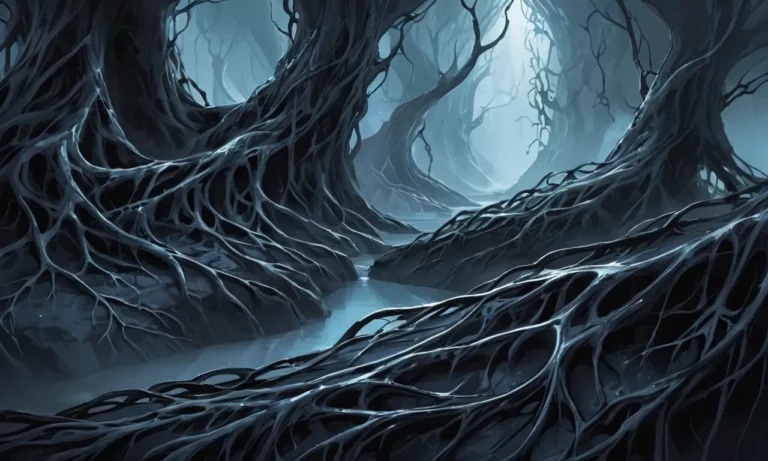The Amazing World of Dragons: Exploring Their History and Mythology

Hey there, dragon fans! Today, we’re going to embark on an epic journey into the fascinating realm of dragons – those mythical, fire-breathing creatures that have captivated our imaginations for centuries. Get ready to explore the rich history and mythology surrounding these legendary beasts, and unravel the secrets that have made them an enduring symbol of power, wisdom, and wonder.
The Origins of Dragon Lore
Dragons have been a part of human culture and storytelling for as long as we can remember. From ancient civilizations to modern-day fantasy, these mythical creatures have taken on various forms and meanings across different cultures and periods. Let’s dive into the origins of dragon lore and how they’ve evolved.
- Ancient Civilizations: Some of the earliest mentions of dragon-like creatures can be found in the myths and legends of ancient civilizations such as Mesopotamia, Greece, and China. In these stories, dragons were often depicted as powerful, serpentine beings that guarded treasure hoards or represented natural forces like rain and rivers.
- European Folklore: During the Middle Ages, dragons became a prominent figure in European folklore, where they were often portrayed as fearsome, fire-breathing monsters that had to be slain by brave knights or heroes. These tales, such as the legend of St. George and the Dragon, reflected the cultural and religious beliefs of the time.
- Eastern Mythology: In contrast, dragons were revered and respected in many Eastern cultures, particularly in China and Japan. They were seen as powerful, benevolent creatures that symbolized strength, wisdom, and good luck. Dragons played a significant role in various festivals and rituals.
Legendary Dragons from Around the World
Each culture has its own unique interpretation of dragons, with distinct characteristics, abilities, and symbolic meanings. Let’s explore some of the most iconic dragon legends from around the world:
European Dragons:
- “The dragon was a huge, winged beast, with a long, serpentine body, sharp claws, and scales that shimmered like armor. Its fiery breath could melt stone and reduce entire villages to ash.” – Description of a typical European dragon, often depicted as a fearsome, fire-breathing monster.
Chinese Dragons:
- “The Chinese dragon was a benevolent creature, associated with wisdom, power, and good fortune. It had a serpentine body, four legs, and a pair of horns, and was believed to control the elements and bring rain.”
Japanese Dragons:
- “In Japanese mythology, dragons were revered as divine, celestial beings. They were often depicted as serpentine creatures with three claws, and were believed to be the bringers of water and rain, ensuring the prosperity of crops and communities.”
Norse Dragons:
- “In Norse legends, the dragon Níðhöggr gnawed at the roots of the world tree, Yggdrasil, while the dragon Fafnir guarded a cursed hoard of treasure, until he was slain by the hero Sigurd.”
These are just a few examples of the rich and diverse dragon legends from around the world. Each culture’s interpretation reflects its unique beliefs, values, and storytelling traditions.
The Enduring Allure of Dragons
But why do dragons continue to fascinate us, even in modern times? There are several reasons why these mythical creatures have endured and remained a beloved part of our collective imagination:
- Power and Strength: Dragons are often depicted as immensely powerful beings, capable of controlling the elements and possessing extraordinary physical strength. This representation speaks to our innate human desire for power and our admiration for formidable forces.
- Symbolism and Wisdom: In many cultures, dragons are associated with wisdom, knowledge, and spiritual enlightenment. They are seen as guardians of ancient secrets and keepers of profound truths, appealing to our curiosity and thirst for understanding.
- Fantasy and Escapism: Dragons inhabit a world of pure fantasy, offering an escape from the mundane realities of everyday life. Their existence in stories, films, and games allows us to indulge in imaginative adventures and explore realms beyond our own.
- Cultural Significance: For many cultures, dragons hold deep-rooted significance and are woven into their histories, traditions, and belief systems. This cultural significance contributes to the enduring appeal of dragons, as they represent a connection to our ancestral roots and collective heritage.
Dragons in Modern Popular Culture
In recent years, dragons have taken on a new life in popular culture, capturing the hearts and minds of audiences worldwide. From beloved book series and films to video games and television shows, these mythical creatures continue to inspire and entertain:
- “The Hobbit” and “The Lord of the Rings” by J.R.R. Tolkien: Smaug, the fearsome dragon who guarded the Lonely Mountain, left an indelible mark on fantasy literature and sparked a renewed interest in dragon lore.
- “Game of Thrones”: The HBO series introduced us to the magnificent Drogon, Rhaegal, and Viserion, the dragon children of Daenerys Targaryen, reigniting our fascination with these winged beasts.
- “How to Train Your Dragon”: This animated film franchise offered a fresh and endearing perspective on the relationship between humans and dragons, showcasing their potential for friendship and loyalty.
- “Dungeons & Dragons”: The iconic tabletop role-playing game has featured dragons as fearsome adversaries and coveted allies, allowing players to immerse themselves in fantastical adventures alongside these legendary creatures.
These are just a few examples of how dragons have captured the imagination of modern audiences, proving that their allure transcends time and cultural boundaries.
Conclusion
From ancient myths to modern storytelling, dragons have remained a captivating and enduring symbol of power, wisdom, and wonder. Their diverse interpretations across cultures and their ability to inspire awe and imagination have solidified their place in our collective consciousness.
Whether you’re a lifelong fan of dragon lore or a newcomer to this fascinating world, there’s no denying the enduring appeal of these mythical creatures. So, let your imagination soar, and embrace the magic and mystery that dragons have to offer. Who knows? Perhaps one day, we’ll uncover the secrets that have kept these legendary beasts alive in our hearts and minds for centuries.






